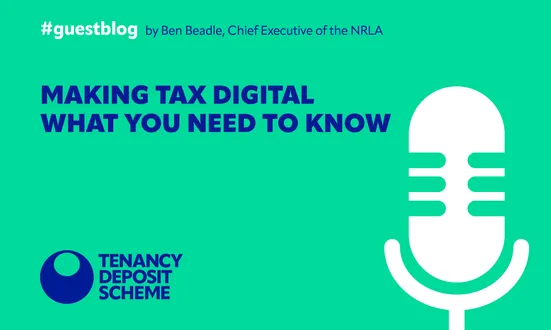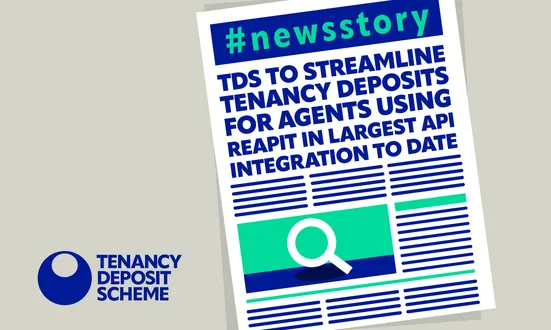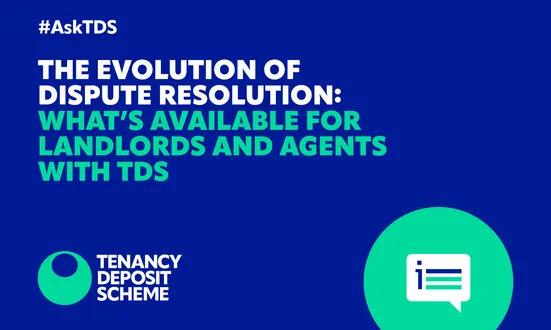Each year, many people find themselves becoming landlords unexpectedly. Whether through inheriting a property, moving in with a partner and keeping a spare home, or struggling to sell in a tough market. Whatever the reason, stepping into the role of a landlord can feel daunting at first.
The good news is that with the right knowledge and support, being an accidental landlord can turn into a rewarding opportunity! It can provide extra income and help secure your financial future if handled correctly from the start.
In this week’s #ASKTDS, the Tenancy Deposit Scheme breaks down the essentials for accidental landlords from common pitfalls to key responsibilities, helping you manage your role with confidence. Plus, we’ll introduce our spring guide to landlords’ annual responsibilities, a must-have resource to keep you on track throughout the year!
Common challenges and mistakes
Taking on landlord duties without prior experience can lead to some common mistakes. Here are a few areas where accidental landlords often slip up:
- Have you got consent to let?
You must at all times inform your lender of your intention to let your property. This is commonly referred to as a consent to let. Some lenders are happy with this alone, but some will ask you to switch the mortgage product you are on to a buy to let.
- Not registering the tenant’s deposit
A common pitfall is failing to protect the tenant’s security deposit properly. UK law requires you to register the deposit with a government-approved scheme within 30 days, and not doing so can lead to penalties or cause problems at the end of tenancy.
- Not understanding legal obligations
Landlord law can be overwhelming, and it’s easy to overlook important rules if you’re not aware of them. Accidental landlords should take the time to educate themselves on legal responsibilities, our landlords guide to deposit protection blog here can help clear up the basics.
- Falling behind on safety checks
Gas safety certificates, electrical inspections and smoke alarms: None of these are optional! Failing to meet safety requirements doesn’t just put tenants at risk; it can also result in hefty fines, legal action, or even invalidate your insurance. Landlords must stay on top of these essential checks.
- Managing tenants informally
Some new landlords may take a casual approach, like skipping paperwork or using informal agreements. This can lead to misunderstandings or even deposit disputes later down the line. Issues like late rent or property damage are much easier to handle if you communicate clearly, keep records, and follow proper procedures from the start.
10 Key responsibilities every accidental landlord should know
- Protect the tenant’s deposit:You must protect any tenant deposit in a government-approved scheme within 30 days and provide the tenant with the required deposit protection details, also known as the Prescribed information. This safeguards their money and helps avoid conflicts when the tenancy ends.
- Keep the property safe and compliant: Make sure the home is safe and free from hazards. Get a Gas Safety check every year, an electrical inspection at least every five years, and install working smoke alarms and carbon monoxide detectors. You also need a valid Energy Performance Certificate (EPC) rated E or above, and you must give a copy of the EPC to your tenants at the beginning of tenancy. Check the latest MEES (Minimum Energy Efficiency Standards) regulations, as new rules may require a higher rating in the future.
- Carry out a proper check-in and inventory: A detailed inventory and check-in report is one of the most effective ways to protect yourself against disputes at the end of the tenancy. Document the property’s condition before tenants move in, including photos and written descriptions of walls, floors, appliances, and furnishings. Both you and the tenant should sign the inventory to confirm agreement. This record will be essential if there’s a dispute over damages or deposit deductions later on.
- Maintenance and repairs: landlords are responsible for maintaining the structure and exterior of the property, along with key services like heating, plumbing, and electrics. Repairs should be carried out within a reasonable timeframe to ensure the property remains safe and habitable. Prompt maintenance isn’t just a legal duty, it also protects your investment and keeps tenants happy. If you’re unsure of what you’re responsible for, have a look at our repairs blog here, or check the tenancy agreement.
- Respect tenants’ rights and follow the rules: Always use a proper written tenancy agreement and respect your tenant’s privacy. In England, landlords must also verify the tenant’s Right to Rent and provide the latest How to Rent guide at the start of the tenancy. Keeping documentation like an inventory and rent receipts, will help prevent disputes.
- Understand tax responsibilities: Renting out a property means you’ll need to declare rental income and pay any applicable taxes. Keep detailed records of income and expenses, and consider consulting an accountant who specialises in landlord taxation. If you live abroad, check if you qualify for the Non-Resident Landlord Scheme to manage tax obligations in the UK.
- Keep spare keys: Ensure you have at least two sets of keys for each tenant before they move in. Keeping a spare set for yourself (or your property manager) is also a good idea in case of emergencies.
- Confirm utility accounts are set up in your tenant’s name: Encourage tenants to register with utility providers as soon as they move in. This ensures they’re responsible for the bills and prevents confusion about outstanding payments at the end of tenancy. Taking a meter reading on move-in day and informing utility companies of the tenancy start date can also help avoid disputes.
- Build good tenant relationships: A positive landlord-tenant relationship can make managing your property much easier. Clear communication, prompt responses to maintenance requests, and a fair approach to disputes all contribute to a smoother tenancy. Happy tenants are more likely to stay longer, reducing void periods and the costs associated with re-letting.
- Be prepared for deposit disputes: At the end of a tenancy, deposit deductions can sometimes lead to disagreements. To avoid these disputes, communicate clearly with your tenant about any deductions and provide evidence, such as inventory photos and receipts. If an agreement isn’t reached, the Tenancy Deposit Scheme offers a free Alternative Dispute Resolution (ADR) service, where an independent adjudicator reviews the case and makes a fair decision. TDS also provides early and self-resolution options, allowing landlords and tenants to negotiate directly before escalating the issue. Keeping clear records from the start will make the process smoother and help protect your position.
How the TDS spring guide can help accidental landlords
To make it easier to manage all these responsibilities, the Tenancy Deposit Scheme, in partnership with the NRLA, has created the Spring guide to landlords annual responsibilities. This downloadable guide breaks down what you need to do throughout the year, with a checklist of tasks and key deadlines from annual safety checks to tax filing dates. It also highlights any new rules for 2025, so you stay up to date with changing legislation.
Whether you became a landlord by accident or on purpose, staying informed is the best way to protect your property and keep your tenants happy.
About TDS
The Tenancy Deposit Scheme is part of The Dispute Service (TDS), the largest tenancy deposit protection (by value) and resolution service provider in the UK making life easier for tens of thousands of agents, landlords, developers, and millions of tenants and homebuyers.
We provide a free Custodial tenancy deposit protection scheme, or join our Insured tenancy deposit protection scheme, which offers the best rates for agents and landlords.
Protecting deposits with TDS is quick and easy.
Other news stories


